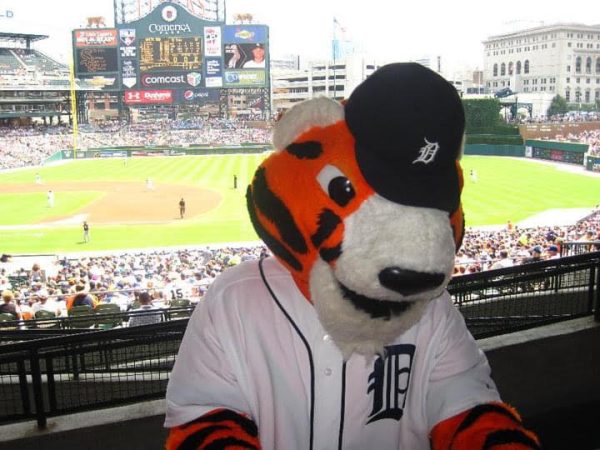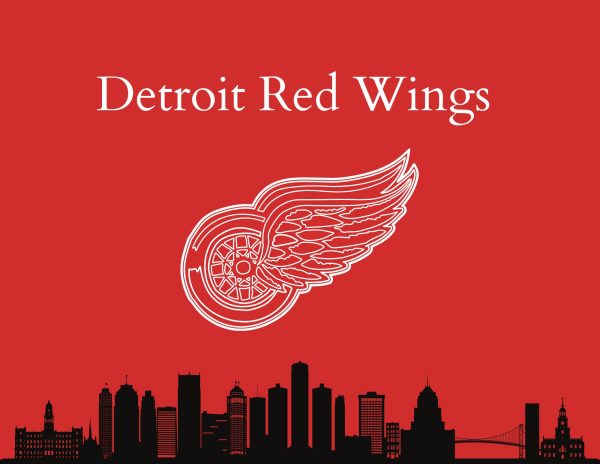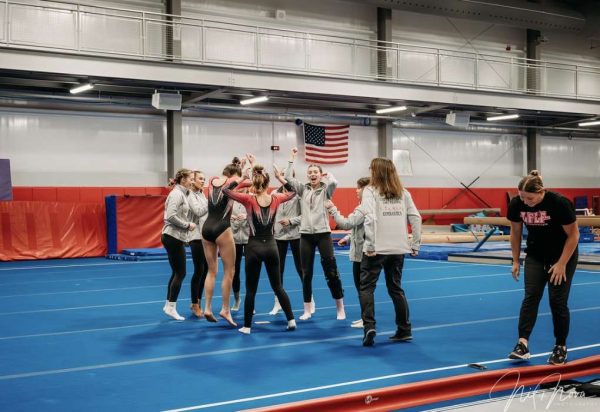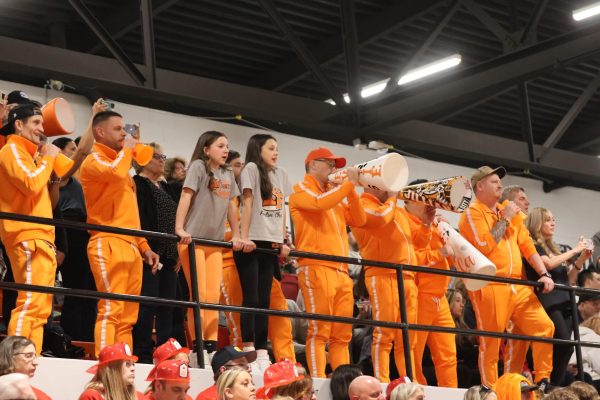Die hard Red Wings fan accepts opportunity of a lifetime; watches live practice and interviews head coach
On a winter day colder than the ice the Red Wings skate on, I received an unexpected text message from my journalism adviser, Pam Bunka, that warmed my heart. I opened the message thinking I had missed an assignment, but to my surprise, found a picture bearing the legendary Red Wings insignia.
The picture was of a letter, inviting “star journalists” to attend “High School Journalist Day” at the fabled Joe Louis Arena, which was presented by ITC Holdings Corporation.
Being a lifelong sports fanatic and living in an age in which the Red Wings had never missed the playoffs, the invitation was a shining beacon. Immediately, I accepted the once-in-a-lifetime offer.
A few weeks later, I walked into the Joe Louis Arena with my grandfather, also a lifelong Red Wings fan. Anxious, I entered the press room at Olympia Hall and sat down to finds dozens of other high school journalists, just as nervous as I was.
Moments later, enter four members of the Red Wings media; radio play-by-play announcer Ken Kal, Kevin Allen of USA Today, Bob Duff of the Windsor Star and Michael Caples of Michigan Hockey. After an inspiring introduction detailing the effort and dedication it takes to work in the sports journalism field, the panelists began to take questions. Knowing I would most likely get to ask one of my questions, I listened to their words of wisdom, then waited for my main target, head coach Mike Babcock.
Following the initial press conference, chauffeurs escorted us through the pristine halls of the Joe Louis Arena and into the press boxes. From there, we traveled down the worn stairs and into the rickety seats to watch the Red Wings practice. Exhilarated as these unparalleled athletes crashed into the glass mere inches from my face, I sat in awe of their tremendous athletic ability.
Instinctively, the journalist side of me kicked in and I began to watch the practice objectively, looking for potential questions to ask. I noticed how they practiced their scoring drills and referred to my notes, when the ideal question came to mind.
Babcock walked into the room wearing his intimidating short shorts and Red Wings cap. Raising my hand, I was handed a microphone by one of the assistants: it was time. I stood up shaking, perspiring, trying to find the words I was looking for. After briefly stuttering, I asked my question: “You guys have been outscored 70-51 in the third period, what is the disconnect there and how can you guys improve in that aspect of the game?”
He responded by first acknowledging the quality of my question and the professionalism of the manner in which I asked it. I knew I had made it when he mentioned a reporter had asked the same thing. Continuing, he addressed what he felt the issue was.
“Do I think we’re out of shape, absolutely not. Do I think we do not try, no, but under the gun we do not execute as good, and when you look at our lineup we do not score,” Babcock said. “However the game is always close… We have been in overtime more times than anybody in the league, that’s what it’s about being a team that’s just scraping and clawing and trying to win. Good question.”
What started as an opportunity now became a reality. For one day, I was a professional sports reporter.





